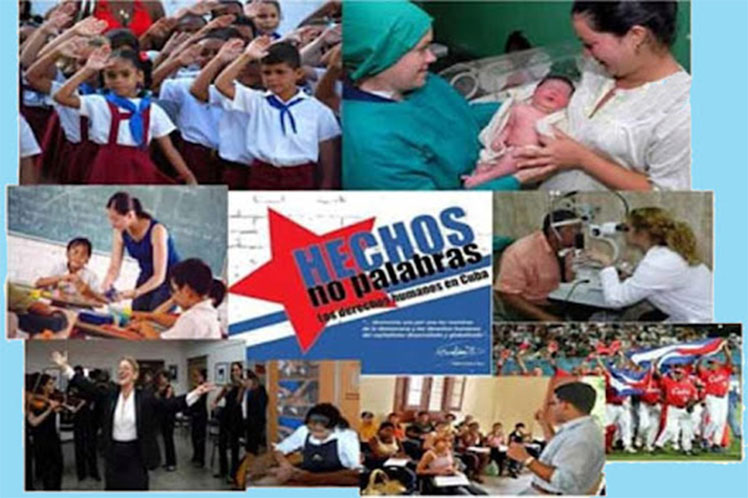Havana, Cuba: The protection of human rights in Cuba today confirms the figures of what is possible for a besieged social system that emulates to the most advanced laws and practices for their preservation, Prensa Latina publishes.
The largest of the Antilles shows progress recognized worldwide in health, education, culture, sport and participation in international instruments, even when the campaigns indicate violations of these guarantees, one of the most sensitive issues for the country.
Among others, the right to participate in public affairs, access to justice, fight against impunity, rule of law and control of legality, as well as the mechanisms of attention to citizens and ways to report violations of their rights.
Likewise, the country has expanded access to information, cultural rights and access to art and culture, the protection of sexual and reproductive health and labor rights.
People with disabilities, the elderly, women and other sectors also have broad protection of the State.
This also ensures the preservation of gender equality and against discrimination on racial or gender grounds, freedom of artistic creation and association.
At the same time, it promotes the active participation of civil society organizations in the identification and solution of the challenges that the nation faces and fosters a favorable scenario for religious freedom.
In accordance with Cuban laws, the State institutes a health system at all levels accessible to the population and develops prevention and education programs, in which society and families contribute.
Public Health boasts a life expectancy at birth greater than 78 years and remarkable results in the treatment of diseases such as cancer or Covid-19.
According to the Minister of Health, José Ángel Portal, the confrontation with the pandemic was a test for one of the sectors impacted by the hostile policy of the United States against Cuba.
However, since October the country led the indicator for the highest proportion of daily doses applied per 100 inhabitants in the world, with a daily average of 250 thousand vaccines developed by Cuban science.
On that date, the Antillean nation occupied one of the first 15 in the world with 71.6 percent of the population completely immunized.
Two months later, more than 83 percent of Cubans completed their immunization scheme against Covid-19, while the capital began the application of a booster dose for its vaccinated population.
Beyond its borders, Cuban doctors also provided services to 87 countries and territories in almost six decades of collaboration.
In the midst of the global emergency due to Covid-19, more than 50 brigades arrived in 39 states to contribute to the fight against the pandemic.
With similar precepts, education on the island is considered a right of all people, and constitutes a responsibility of the State.
It guarantees free, affordable and quality services for comprehensive training, from early childhood to postgraduate university education, for which it allocates more than 20 percent of its annual budget.
In line with the fulfillment of human rights, the Cuban Constitution considers all persons equal before the law, without any discrimination.
In October 2020, the largest of the Antilles was included as a member of the United Nations Human Rights Council for the period 2021-2023, with a management focused on ensuring an international order based on inclusion, cooperation, social justice, human dignity and respect for diversity.

